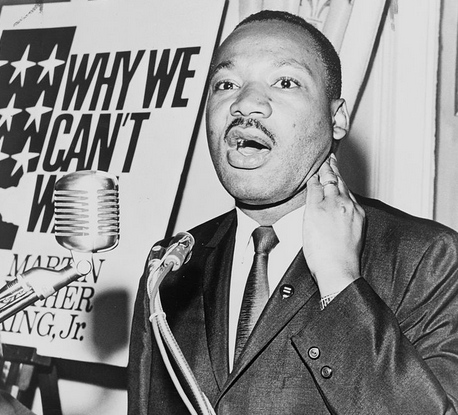Netizen Report: Winter Olympics Bring Chilling Effects to the RuNet
Posted 22 January 2014 19:37 GMT
Hae-in Lim, Sonia Roubini, Alex Laverty, Richard Teverson,Mohamed ElGohary, Ellery Roberts Biddle, and Sarah Myerscontributed to this report.
Global Voices Advocacy's Netizen Report offers an international snapshot of challenges, victories, and emerging trends in Internet rights around the world. This week's report begins in the United States, where rights advocates are responding to President Barack Obama’s highly anticipated speech on surveillance reforms, delivered last Friday. Obama pledged to dismantle the system of collecting phone call metadata “as it currently exists.” Other changes will include the addition of a public advocate in the FISA court who will be responsible for approving surveillance requests; the adoption of stricter standards for accessing metadata; and raising the threshold for authorizations for spying on foreign leaders. Despite the reforms, Obama’s speech came under criticism for not going far enough. Reactions from rights advocates in the United States and around the globe were mostly critical.

Martin Luther King, Jr. Image released to public domain.
PEN International’s Deji Olukotun noted the historical irony in Obama’s treatment of state surveillance, an issue that plagued civil rights leader Martin Luther King Jr. “[It] makes little sense for the President to open the door on the deeply-flawed surveillance program that plagued King while making cosmetic reforms to his own far-flung surveillance program.”
Global privacy leaders largely reiterated the need to take further steps to protect privacy rights. Government officials in the EU, U.K., and Germany had mixed reviews, while Brazilian leaders, who have been highly critical of the NSA program, refused to comment publicly.
The Electronic Frontier Foundation put together a scorecard rating the reform plan 3.5 out of a possible 12.
Free Expression: Winter Olympics bring chilling effects to the RuNet
New legislation in Russia allows security authorities to block websites and social networks that host calls for “participation in mass public events.” The policy goes into effect in Russia on February 1, just ahead of the Winter Olympics in Sochi. Other laws still under consideration would introduce new data collection requirements for websites and restrict online money transfers for NGOs.
Ukraine’s Parliament passed a law that openly restricts free speech, peaceful protest and free communications in the country.
Thuggery: “Watchdog” journalists threatened over leaked draft constitution
Zambian police are threatening to prosecute the operators of independent news site the Zambian Watchdog after the embattled site published a new draft constitution that lawmakers wrote but failed to release to the public. This is one in a series of attempts to shut downthe Zambian Watchdog.
Surveillance: Sanctions on Sudan limit online security
A new report from Tech President describes how broad US sanctionsagainst Sudan are preventing netizens from downloading a range of online tools, including secure messaging software.
Privacy: Canada spanks Google
Canadian authorities found that Google illegally violated a user’s privacy rights—and its own privacy policy—when it used medical information from his search history to target ads. A yearlong investigation by Canada's federal privacy watchdog found Google responsible, with consequences that could be “industry-wide,” according to Interim Privacy Commissioner Chantal Bernier.
Industry: China expands its reach in Africa
The Kenyan government will award national digital television distribution rights to Chinese company PANG, a decision that has caused alarm among local TV stations and activists who fear the change could lead to censorship. The government’s Digital Transition Committee says that PANG is required to be a “neutral signal carrier.”
Internet Governance: Hello, Brazil
Since the Brazilian government announced plans to hold a global Internet governance event in Sao Paulo, Brazil this April, governance experts and advocates have been buzzing with anticipation and developing plans of action for the event. Now known as the “Global Multistakeholder Meeting on the Future of Internet Governance,” Brazil’s state-convened Internet steering committee reports that the meeting will “focus on crafting Internet governance principles and proposing a roadmap for the further evolution of the Internet governance ecosystem.” Perhaps anticipating what will likely be a hotly contested debate, the change sets out more modest objectives for the meeting, which previously sought to “pursue consensus about universally accepted governance principles and to improve their institutional framework.”
A US federal appeals court has ruled that the Federal Communications Commission cannot impose Internet neutrality rules that were developed and adopted in 2010. In brief, the rules seek to prevent Internet service providers from prioritizing certain kinds of Internet traffic over others by requiring that all online information be treated equally.
The European Union is similarly preparing to take up net neutrality, via the legislative route. In response, a group of European civil rights groups have launched a new campaign, SaveTheInternet.eu, to amend or block the regulation.
Cool Things
Syria Untold, a Web platform that aims to highlight creative and journalistic projects coming out of Syria’s nonviolent uprising, is now offering a newsletter. Sign up here.
Blackphone claims to be the first smartphone able to make and receive secure calls, facilitate secure video chats, and exchange and store files and SMS messages privately. Silent Circle and Geeksphone will debut the device at the Mobile World Congress (MWC) in Barcelona in February.
Publications and Studies
- “Reporter’s Guide for Covering the 2014 Winter Olympic Games in Sochi, Russia”—Human Rights Watch
- “Finding a Formula for Brazil: Representation and Legitimacy in Internet Governance”—Internet Policy Observatory
No comments:
Post a Comment